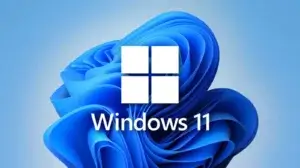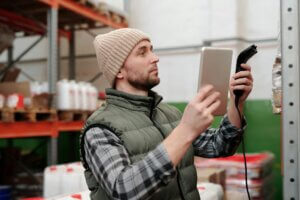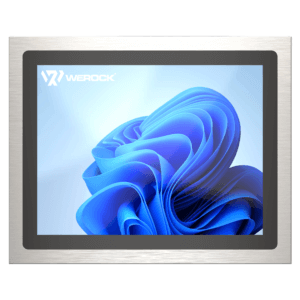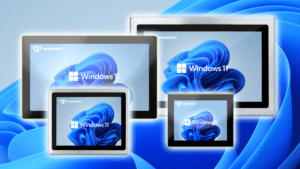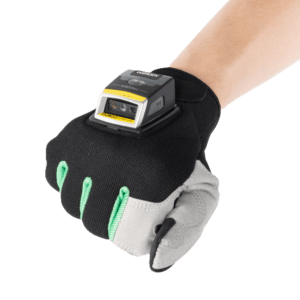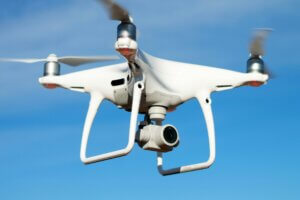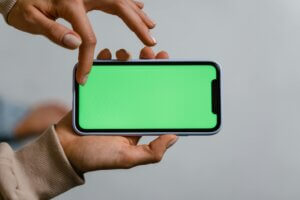Eating comfortably in a restaurant, attending a concert, taking a vacation without quarantine, or simply sitting relaxed at the movies – all of this should be possible in stages for vaccinated and geneseeded people.
Read here what decisive role the digital vaccination passport in Germany plays in the return to normality.
Recovery of the economy
Formal decisions have yet to be made, but the German government is planning a legal ordinance that could soon make everyday life easier for those who have been vaccinated and those who have recovered. The digital vaccination certificate is also expected to play an important role. Possible freedoms are justified by the fact that, according to the RKI, vaccinated and recovered people have a lower risk of infecting other people than people who have only been tested negative by antigen tests.
Initial relaxations in contact and exit restrictions are planned for people who have already been vaccinated. In some states, for example, negative Corona tests are no longer required when visiting a hairdresser or shopping in retail stores. These relaxations would be a big step out of the crisis, especially for industries that have been hit very hard by the pandemic, such as gastronomy, events or even tourism.
Some cities in Germany have already been part of model trials where concepts related to negative corona testing have been implemented. The city of Wernigerode in the Harz region opened its outdoor gastronomy for two weeks using the “Pass-Go” app. For this purpose, test centers were set up in the city where city residents could be tested free of charge. The test result was then sent to them via QR code to the “Pass-Go” app, which was valid for 24 hours in the event of a negative result. With this QR code, it was now possible to visit outdoor areas of restaurants and cafés. The staff was also equipped with this app and could easily scan the code of the visitors. With the help of high-performance scanners, the QR codes can be scanned without any problems even in strong brightness and reflections. This is where ordinary smartphones quickly reach their limits, which is why robust handheld devices with built-in scanners have clear advantages here.
Despite Corona, swimming pools are allowed to open for the season if they can demonstrate a functioning usage and hygiene concept. GiroSolution, the competence center for public institutions and municipal companies of the Sparkassen-Finanzgruppe, has a solution for this. Together with the local savings banks, it offers public pool operators digital admission management. It enables swimming pool operators to sell admission tickets digitally and implement Corona requirements. Personalized online ticket sales can be used to limit the number of visitors and track infection chains. Bathers also have the option of seeing when there are still free seats in the pool and reserving them via ticket purchase. This means they spend less time waiting in line at the ticket office and can pay securely online.
With the help of mobile turnstiles and corresponding software, admission controls can be optimized even further under Corona regulations. In addition to better adherence to minimum clearances, service providers also have much better control over regulating the number of visitors. With the help of online registration, customers can easily reserve a seat at a specific time. This avoids long lines while reducing the risk of infection.
Besides the already well-known Luca app, there are several other similar softwares. Apps such as PRODSGVO, Darfichrein, Tasko Corona or the MeldeApp from shapefruit all pursue the same goal: to use personalized QR codes to simplify visitor management in public facilities under Corona conditions and thus speed up reopenings.
Back to normal life with the digital vaccination certificate?
As of the second half of the year, this should now be the case. According to the federal government, the digital vaccination certificate is an additional option to the yellow vaccination certificate to document vaccinations against Covid-19. Instead of only being able to show the vaccination date, vaccine and name in the yellow vaccination certificate, this information will then also be stored in a personalized form – and free of charge – on the cell phone.
So what exactly does this digital vaccination certificate consist of? Let’s start with the app, which is installed on the devices in the traditional way. Here, the vaccination certificate, test certificate or convalescence confirmation would be stored. In addition, it seems not unlikely that these certificates can also be accessed via a homepage. The latest thinking is that the vaccination certificate would also be integrated into the federal government’s official Corona warning app, as well as other contact-tracking apps.
Every German citizen would receive the digital certificate after their last Corona vaccination. According to current scientific knowledge, full vaccine protection is available within 14 days of the second vaccination. This is at least the case with the vaccines from Biontech, Moderna and Astrazeneca. Here, two vaccinations are required in each case. In the case of the new product from Johnson & Johnson available in Germany, protection is already provided after the first vaccination.
A test phase is scheduled to begin in May so that restaurateurs, hotels, cultural venues and other service providers can make sufficient technical preparations for the “digital vaccination passport” project. Initial pilot projects are already underway in Saxony, Thuringia and Lower Saxony. Further pilot projects on the digital vaccination certificate are planned. Corresponding discussions between the associations and statutory health insurers are underway. A digital infrastructure has been developed for this purpose, which doctors can access via their practice system. Use of the vaccination certificate is voluntary.
How does the digital vaccination certificate work?
The digital vaccination certificate will replace the classic paper vaccination certificate in the next few years and will bring numerous advantages once it is fully implemented – for people who are vaccinated, for doctors, but also for the public healthcare system and thus for the entire population.
The vaccination certificate will be technically based on a so-called public key infrastructure, or PKI for short. With the PKI, the data of the vaccinated persons is encrypted as one data record and signed with a secret key. The data includes information on the location of the vaccination and the vaccine used. The data set is then to be displayed as a “Digital Green Certificate” via an additional module in the Corona warning app and in other applications. With the associated public key, which can be distributed unprotected, the data record becomes verifiable, for example at a border crossing, while shopping or at the theater box office. The verification should basically be able to take place offline, according to the plans. In addition, the analog vaccination certificate on paper will continue to exist.
Above all, the vaccination certificate should show that a person has been vaccinated and be forgery-proof. Corona convalescents should also be able to identify themselves with this proof, which is why it is also called an immunity proof. For service providers who want to check immunization status, there will be a verification app to check the immunization verification token. This can then be used to scan the vaccination status, similar to a barcode on an airline or train ticket. Alternatively, verification is possible with the analog vaccination certificate.
What are the advantages and disadvantages of the digital vaccination certificate?
The digital vaccination card requires a smartphone, which is both an advantage and a disadvantage. A big advantage is that users always have their vaccination card with them. This saves the annoying search for the paper booklet. In addition, a digital vaccination card offers standardization. Data should be able to be used and exchanged across sectors – regardless of the software system used by the doctor or health insurer.
A major disadvantage, however, is that some groups of people will be excluded from the service. This applies, among other things, to older people or people with low incomes who cannot afford or do not want a modern smartphone. There are also still some construction sites in Germany in the area of digital infrastructure that pose problems for the digital vaccination passport. For example, there are still many areas without nationwide mobile communications coverage. You can also read our blog on the topic of “UMTS is disappearing – are you prepared?”.
The digital vaccination certificate can lead to an improvement in health care. The reason: functions such as automatic reminders to refresh vaccinations prevent the loss or significant drop in vaccination protection. In addition, many experts are hopeful that the vaccination rate in Germany will increase, as a digital vaccination certificate, along with its additional functions, services and features, may make the subject more attractive.
Be optimally prepared with WEROCK
Are you still looking for a robust variant to get your business up and running quickly? Then our Scoria A105 is the product for you. The integrated Qualcomm® mobile platform offers a premium combination of advanced features, leading performance, robust connectivity and all-day battery life. For example, there are no delays due to dead batteries during entry checks at event halls, as can be the case with ordinary smartphones. The built-in QR code scanner immediately scans the digital vaccination card and thus speeds up every admission many times over. Problems such as excessive brightness or mirrored displays are not a problem, making the Scoria A105 the perfect all-rounder for any situation.
Do you still need a customized app for your area of use? No problem! WEROCK will program your required apps according to your exact requirements, so that you can start right away together with your new Scoria A105!
More information on the Scoria A105 can be found here: Link

